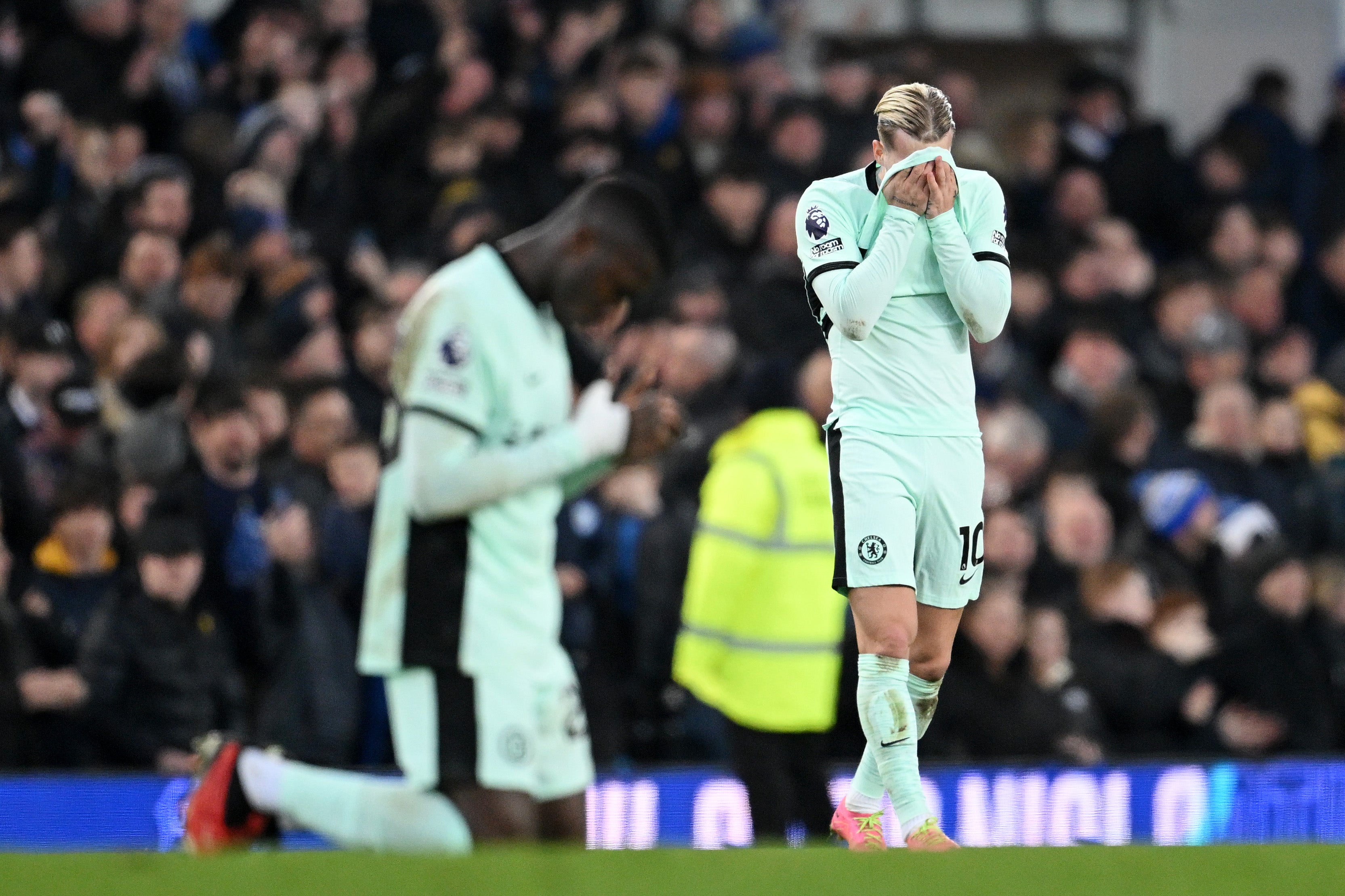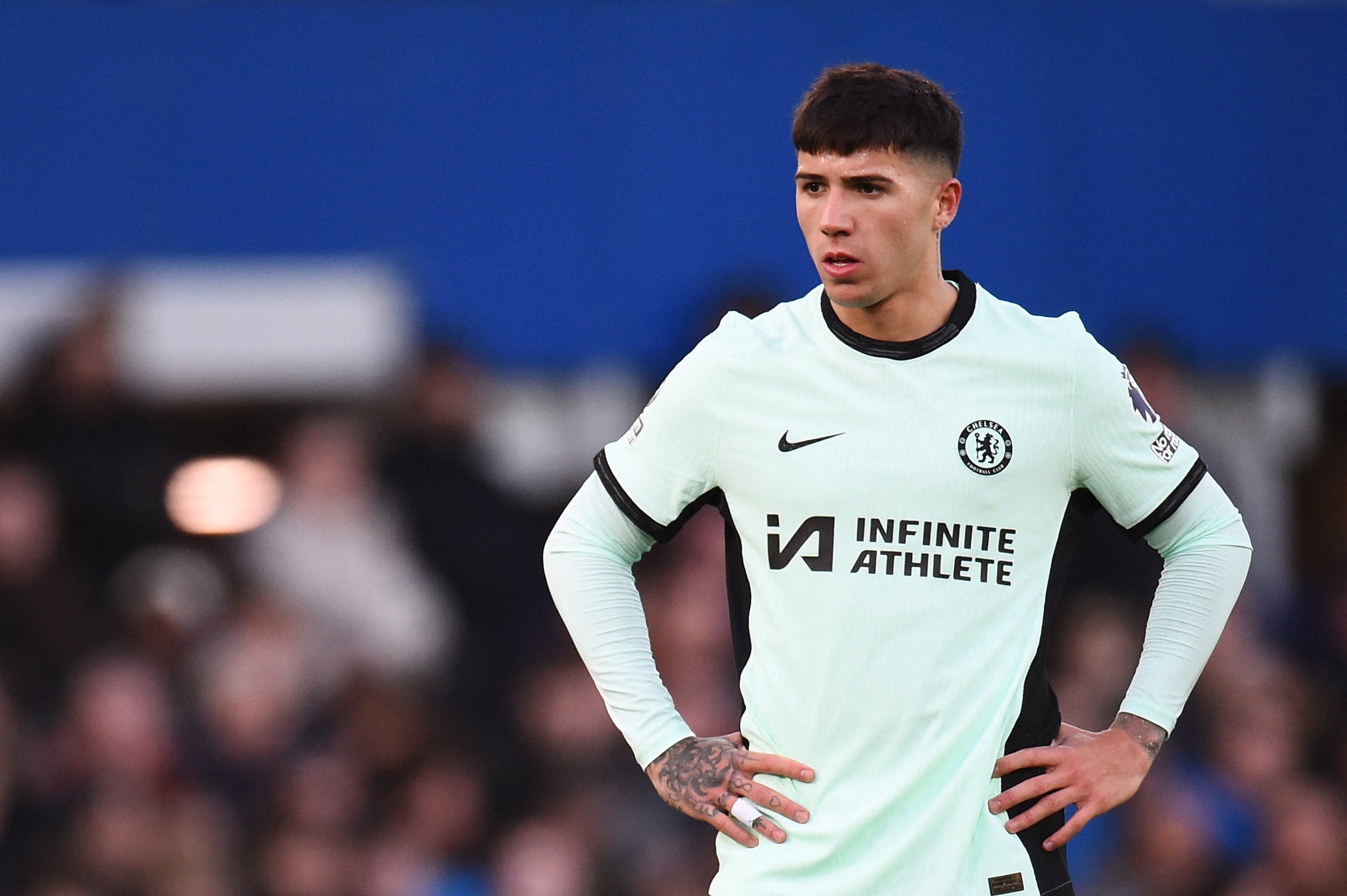The ‘solution’ to Chelsea’s problems? Spend more money!
Chelsea have spent huge amounts of money since Todd Boehly bought the club but are still short of players
Sign up to Miguel Delaney’s Reading the Game newsletter sent straight to your inbox for free
Sign up to Miguel’s Delaney’s free weekly newsletter
Thanks for signing up to the
Football email
After 29 signings and a record spend in excess of £1bn over the last 18 months, Mauricio Pochettino reached the only logical conclusion. Chelsea need more players.
Perhaps it was a sign that a few months in Todd Boehly’s company is enough to infect anyone with the shopaholic Chelsea owner’s thought process, a Stamford Bridge version of Stockholm Syndrome. This, after all, is Pochettino, the manager who took Tottenham to a Champions League final in a season when they signed no one at all. But this is Chelsea where the answer to everything is to spend even more.
Certainly, it was an indictment, of the most expensive plunge into mediocrity in footballing history, of too many of the purchases his employers have overseen, of the strategy that has somehow left him short of players, of goalscorers, with a team that seems inconsistent, mentally and physically weak, unable to defend set-pieces and struggling to gel.
“We need to do something, some movement. That is something to analyse with the sporting director and say what can we do to change the dynamic,” said Pochettino. It is a dynamic that had not just brought a 2-0 defeat to an Everton side who have nothing like his resources. Chelsea’s malaise encompasses six wins in their last 28 league matches, 39 points from 39 matches in 2023, a 12th-place finish last season and a station in 12th now: even that is flattering, as Everton, but for their 10-point deduction, would also be above Chelsea.
A few months at the helm have allowed Pochettino to draw negative conclusions about his inheritance and their summer business. “Then there’s a massive assessment from the beginning of the season, from day one until today,” he said. “When the transfer window opens, we will see what we can do. It’s a problem we need to check. We need to analyse the reality. We need to talk and to try to improve in the next transfer market.”
The last transfer window resulted in an expenditure of over £400m, albeit offset by more than £200m in sales, and yet Chelsea contrived to leave themselves short in both penalty areas. Both goalkeepers used at Goodison Park, Robert Sanchez and the substitute Djordje Petrovic, were unconvincing against Everton’s corners. Pochettino’s complaints about Chelsea’s lack of a clinical touch highlighted the reality that the only potent specialist striker bought for that £1bn spending spree is a declining, and since exiled, Pierre-Emerick Aubameyang. It may have reflected a particular frustration with Nicolas Jackson, the Premier League’s second biggest expected goals underachiever and a player targeted by Bournemouth and Southampton last January.
Chelsea slipped to another defeat against Everton
That Jackson has spent most of the season as Chelsea’s centre-forward is only one of the curiosities amid the unprecedented outlay. The sidelined duo of Christopher Nkunku and Romeo Lavia are yet to make their competitive debuts. Nkunku and Wesley Fofana are prime examples of Chelsea’s capacity to buy injury-prone players, who in turn get injured. They have spent much of 2023 with a packed treatment table, often populated by their recent buys. In turn, it means the squad looks stretched and slim, forcing others to play out of position. Marc Cucurella ended up at right-back at Goodison Park.
He is one of many to make an inauspicious start. Moises Caicedo gave away a penalty on his debut at West Ham. Four months later, Chelsea’s £222m axis of Caicedo and Enzo Fernandez lost a midfield battle at Everton to the £9m James Garner. The most expensive midfield partnership in history ought to have given the club of Claude Makelele, Michael Essien and N’Golo Kante the dominant double act in the division. Instead, midfield looks like one of many problem positions, with Chelsea too soft and weak.
The price tags are unavoidable but also a failure of negotiating. Each was wildly overpriced. As a rule of thumb, in plenty of deals Chelsea have roughly paid twice as much as they should have done; for Fernandez, for Caicedo, for Cucurella, for Sanchez, for Jackson, for Mykhailo Mudryk, for Malo Gusto, for Noni Madueke.
Enzo Fernandez has been one of the issues at Chelsea
It is one explanation of how the bill has come to £1bn. But there have also been a bunch of players who are not good enough, leaving Chelsea in need of an upgrade already. Jackson may be on that list, at least one goalkeeper too, possibly Axel Disasi as well.
Then there are the questionable returns elsewhere of those who were supposed to represent the future, who were designed to save or make Chelsea money in the long term. If the loanees are to make an impact at Stamford Bridge, it surely will not be anytime soon. David Datro Fofana has not scored a Bundesliga or Champions League goal for Union Berlin. Andrey Santos has played seven minutes since August for Nottingham Forest. Cesare Casedei is on the Leicester bench. Angelo Gabriel has lost his place in the Strasbourg side. Gabriel Slonina has one of the lowest save percentages in the Belgian league.
Presumably none represents the reinforcements Pochettino has in mind. And so, facing a second successive season of underachievement, a 14-point deficit to the top four rendering Champions League football utterly implausible, the manager decided the answer lies in the transfer market. That tends to be the Chelsea way.
But in seeking to buy because their other buys have failed, because Chelsea have created voids in their squad in the last three windows, because they now have a bottom-half team, Pochettino underlined the complete ludicrousness of the last 18 months at Stamford Bridge.
Source: Read Full Article



